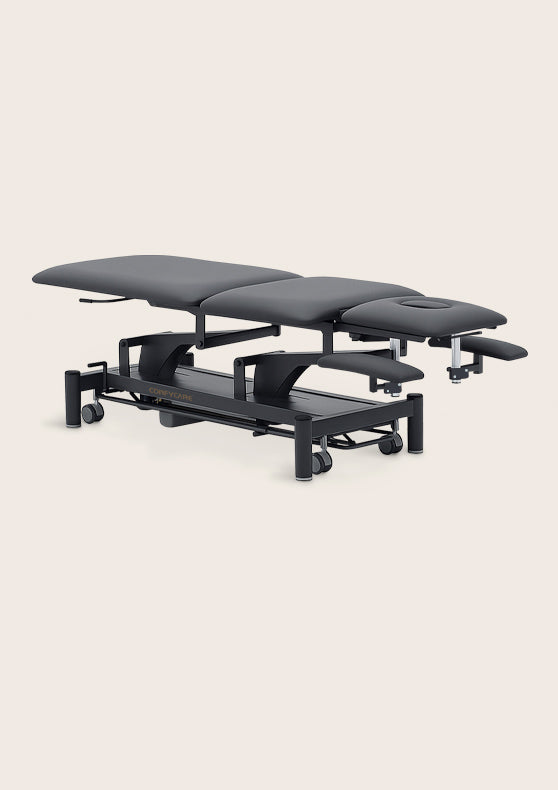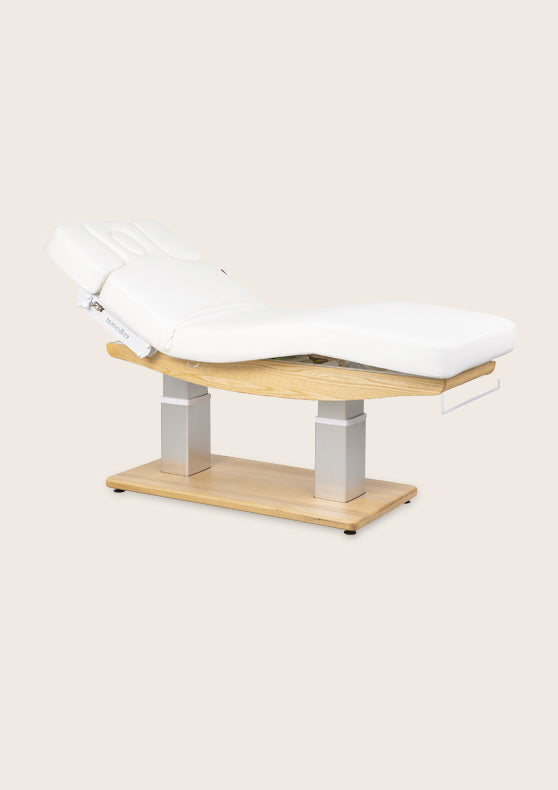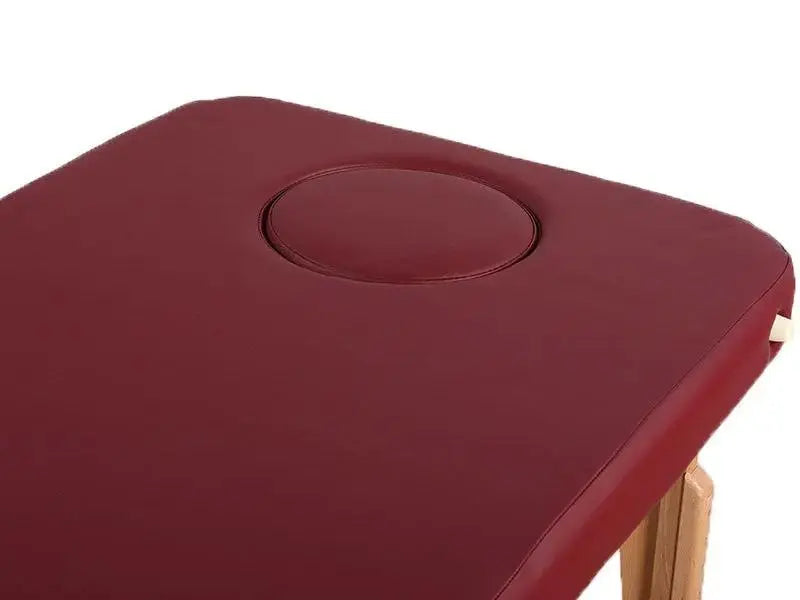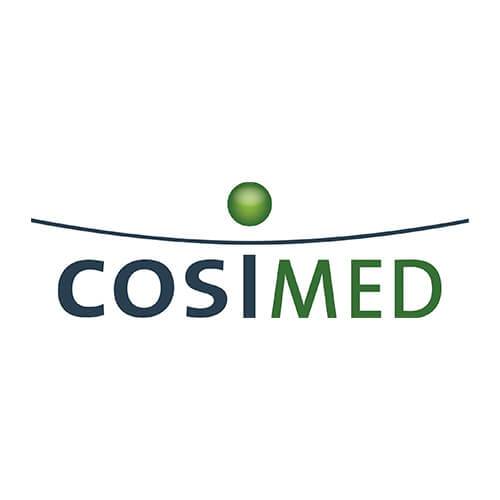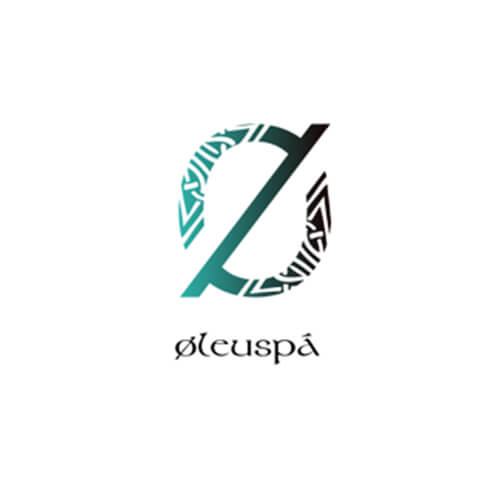Massageliegen und Therapiebedarf direkt vom Profi
Massagen gibt es bereits seit mehreren Tausend Jahren und über die Zeit hinweg sind sie zu einem weltweiten Phänomen geworden, das sich vor allem heute großer Beliebtheit erfreut. Wir haben es uns zum Ziel gesetzt, Ihren Arbeitsplatz perfekt einzurichten, damit auch Sie Ihren Kunden erstklassige Massagen bieten können. Wir begleiten Sie von A bis Z. Dazu zählen neben dem Verkauf von Massageliegen und passendem Zubehör auch eine individuelle und professionelle Beratung sowie eine schnelle Lieferung.
Welche Produkte finden sie bei uns?
Unser Sortiment ist darauf ausgelegt, Sie von A bis Z zu unterstützen. Angefangen bei Therapie- und Massageliegen sowie klappbaren Massagestühlen, finden Sie bei uns verschiedene Modelle von beliebten Herstellern, darunter auch unsere Eigenmarken Massunda® und ZEN® Massage Ware. Ebenso bieten wir eine Vielzahl erprobter Massagetools wie Akupressurmatten und Cups, passende Roll- und Klapphocker, wohlduftende Massage Öle, das nötige Zubehör und sorgfältig ausgewählte Hygieneartikel, die eine sichere Behandlung auf einer sauberen Massageliege garantieren. Unser Shop lässt keine Wünsche offen und mit jedem Produkt versichern wir Ihnen eine hohe Qualität zum fairen Preis.
Warum Massageliegenhaus?
Haben Sie keine Lust mehr, zahllose Angebote zu vergleichen, bei denen die Hersteller kaum voneinander zu unterscheiden sind? Wir als gestandenes, europaweit erfolgreiches Unternehmen, wissen, worauf der Fokus zu setzen ist. Wir wählen alle Artikel sorgfältig aus und als ehemalige Masseure und Bodyworker vertreiben wir nur die Liegen und Tools, die uns auch persönlich überzeugen. Von mobilen Massageliegen bis zur erprobten Faszienrolle - all unsere Produkte sind die besten ihrer Art und überzeugen Masseure, Therapeuten und Privatpersonen bereits seit über 15 Jahren.
Bei uns wissen Sie, was Sie bekommen. In unserem Showroom in Berlin Mitte können Sie den Großteil unseres Sortiments selbst testen und sich einen Eindruck von elektrischen Therapieliegen, Massageliegen und Co. verschaffen. Dabei werden Sie umfänglich und ehrlich von uns beraten. Somit treffen Sie sichere Kaufentscheidungen, die keine Fragen offen lassen. Sie werden sofort merken - Bei uns beginnt Kundenservice nicht erst beim Kauf, sondern von der ersten Minute an.
Massageliegen die Sie begeistern
Kein Masseur oder Therapeut kann auf eine funktionale Massageliege verzichten. Sie ist Grundvoraussetzung für das Ausführen des jeweiligen Berufes und sollte perfekt zu den individuellen Anforderungen des Behandlers passen. Wir, das Massageliegenhaus – Massunda®, sind bei jedem Schritt an Ihrer Seite. Wir sorgen dafür, dass Sie all die Werkzeuge haben, die Sie brauchen, um Ihren Patienten eine optimale Behandlung zu bieten und langfristig in Erinnerung zu bleiben.





